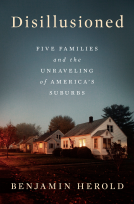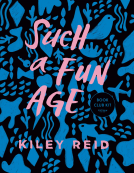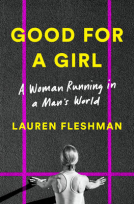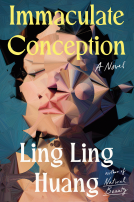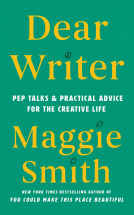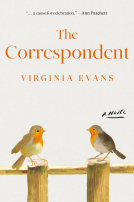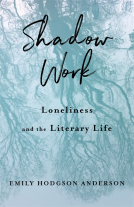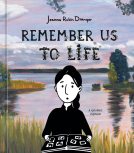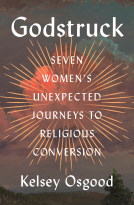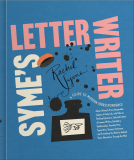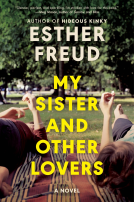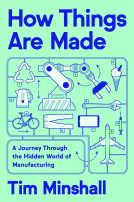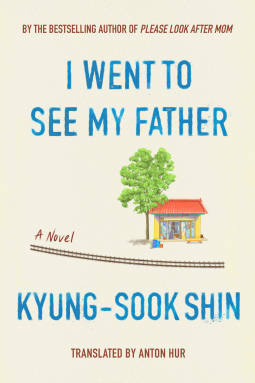
I Went To See My Father
A Novel
by Kyung-Sook Shin
This title was previously available on NetGalley and is now archived.
Send NetGalley books directly to your Kindle or Kindle app
1
To read on a Kindle or Kindle app, please add kindle@netgalley.com as an approved email address to receive files in your Amazon account. Click here for step-by-step instructions.
2
Also find your Kindle email address within your Amazon account, and enter it here.
Pub Date Apr 11 2023 | Archive Date Apr 05 2023
Astra Publishing House | Astra House
Talking about this book? Use #IWentToSeeMyFather #NetGalley. More hashtag tips!
Description
Two years after losing her daughter in a tragic accident, Hon finally returns to her home in the countryside to take care of her father. At first, her father only appears withdrawn and fragile, an aging man, awkward but kind around his own daughter. Then, after stumbling upon a chest of letters, Hon discovers the truth of her father’s past and reconstructs her own family history.
Consumed with her own grief, Hon had been blind to her father’s vulnerability and her family’s fragility. Unraveling secret after secret and thanks to conversations with loving family and friends, Hon grows closer to her father, who proves to be more complex than she ever gave him credit for. After living through one of the most tumultuous times in Korean history, her father’s life was once vibrant and ambitious, but spiraled during the postwar years. Now, after years of emotional isolation, Hon learns the whole truth, from her father’s affair and involvement in a religious sect, to the dynamic lives of her own siblings, to her family’s financial hardships.
What Hon uncovers about her father builds towards her understanding of the great scope of his sacrifice and heroism, and of his generation as a whole. More than just the portrait of a single man, I Went to See My Father opens a window onto humankind, family, loss, and war. With this long-awaited follow-up to Please Look After Mom—flawlessly rendered by award-winning translator Anton Hur—Kyung-Sook Shin has crafted an ambitious, global, epic, and lasting novel.
Available Editions
| EDITION | Other Format |
| ISBN | 9781662601378 |
| PRICE | $27.00 (USD) |
| PAGES | 304 |
Available on NetGalley
Featured Reviews
A beautifully moving novel. Thank you to NetGalley and the publisher for an advanced copy of this book in exchange for a review.
Thank you for granting me access to this book. I cried at how beautiful this is. I plan to make everyone I know read this book as soon as it's out. Just, wow!
 Abby S, Reviewer
Abby S, Reviewer
A beautiful novel a book that drew me right in made me emotional didn’t want it to end.Will be recommending and gifting.#netgalley #astra
What happens if you got to know about your father’s sacrifice and his Vulnerability during postwar in South Korea?
If you stumble upon a chest of letters and discover the truth of your father’s past and your own family history?
If you ask around about him to recollect his forgotten memories from your siblings or his friends during war or your mother?
I fell in love with Shin Kyung Sook’s writing right after reading “Please Look after Mom” and this book is another Gem 💙
Publication Date - April 2023
I would highly recommend this one!
So moving and pure in emotion. This book is guaranteed to steal hearts of many, many readers. I was drawn in from start to finish, and the conclusion was just beautiful. Highly recommended.
We often see our parents as just our parents, but when we are faced with the reality that they were/are full human beings we need to think about them as people, not just parents. I love the cultural part of this book and the daughters journey to reconstruct her father's life as a person, not just as her father.
Slow and descriptive, tender and heartbreaking. I don't usually go for books this slow-paced (or maybe it just doesn't feel that way for me) but the author did a brillant job with the atmosphere of the plot, which was almost unbearably heavy with the weight of all that was left (often intentionally) unsaid between the characters. The writing on this one is beautiful and the characters are as complex as they are loveable.
Thank you for this eARC, I'm so glad I got to read this book.
I Went To See My Father [아버지에게 갔었어] is the third novel by Shin Kyung-Sook [신경숙] translated by Anton Hur. It follows Hon–Honnie–, who returns to J– two years after the death of her daughter to take care of her father while her mother is hospitalised in Seoul. During her stay, she retraces her father's life story and discovers the many family secrets that rest in the past.
After reading Violets last autumn, I wasn't expecting Shin Kyung-Sook's new novel to be an easy read. And indeed, it wasn't.
Throughout the pages, Hon finds in her memories and others's the tools to map her father's own past. Each relative becomes a standing point in time and space, a new layer of the father's story to unfold. As the layers reveal themselves, we readers discover the underlying trauma of loss, war time, as well as the difficulties of a man to sustain his family during the emergence of a capitalist world.
The strong relationship between Hon and her father made me very emotional, for it displays two persons deeply scarred by grief and loneliness, and having the story centred on these two felt like an invitation for being alone together. This was something I would relate to a lot, for my relationship with my own father is very simple and often wordless. But sometimes, connections with your loved ones need no words to be beautiful and meaningful; this story made me remember that.
I know too little of Shin's works to make assumptions, but the countryside and nature seem particularly pervading the landscape of her novels. There is this feeling that she wants herself and her readers to be grounded, to return to their roots, and to explore the genealogy of their family–their hi-story.
Again, that was a success for my part. Being French, I was very impressed by how impactful France appears in this novel of hers. If I had the opportunity to meet Shin and discuss IWTSMF with her, that would perhaps be the first question I'd ask her: "Madam Shin, what makes me feel so connected to you? What makes South Korea and France so connected in this work?" Yes, that would be my question(s).
The novel is so versatile in itself in terms of genre that it is difficult to summarise it in a few words: a memoir? an autobiography? autofiction? fiction? Shin blurs the lines between all, so much so that we can't really put a label on her work. What I think readers should know in advance is that it is relatively slow-paced. The narrator processes to an endeavouring work of archiving memories, of finding out those archives through letters, recorded discussions, taped responses, etc.
Last but not least, I want to praise Anton's work again! Some of the stylistic choices were very interesting and made me curious. I mentioned earlier the importance of France in the novel; one of the first things that struck me was the use of dashes for dialogues, which is something French writers use, unlike American and British authors. I wondered if Shin's work used them initially or if Anton chose them himself, and if so, why? Also, again I know very little of the Korean language but I do know that subjects are sometimes not specified in a sentence because the sentence is clear enough for people to get who's talking and to whom. That's something I found in the book, too, especially in Jung Darae (the mother)'s part.
OK, I should stop there, shouldn't I? Overall, I would strongly encourage you to take up this book and discover Shin Kyung-Sook's works! I really really enjoyed this one and will surely read it again in the future.
Thank you Netgalley and Astra Publishing House for the opportunity to review the novel in advance! It was an immense pleasure!
 Reviewer 609435
Reviewer 609435
At first glance, and in the beginning, it seems that this is (only) a story about a modest father, about hard life, poverty, exhausting work in the fields, about the constant concern for his children and their education. About a father that wanted a better life for his children, a life that would be better than his own, a life that lacked education, was filled with constant hardship and worry.
Father in his frailness gives away more than he intended to. His past, secret life comes to light.
Does that change the father in the eyes of daughter?
The daughter is the (partial) narrator of the story, a writer who not only deals with her sick father and his secrets, thinks about her sick mother in the hospital, her siblings, she has her own burden to carry - the accidental death of her young daughter she blames herself for.
I liked the refreshing change of perspective from the daughter to other characters in the novel who become narrators for a chapter. They talk about the father because the daughter asked them to, she is writing about him and she is trying to find out the truth at the same time. Their testimony is in various forms, a letter, an audio recording, a conversation with her.
This is a novel about family, secrets and after all, about life. What connects everyone is the constant need to have a better life, to try harder, constant worry and constant faliure.
I specially liked delicate writing style, the daugther's recollections about details of her childhood, her childhood home, about the small things that made her life beautiful, the moments of beauty.
Sad, harsh, subtle, melancholic and wonderful.
 Savannah G, Librarian
Savannah G, Librarian
This read definitely brought out a lot of emotions in me. It reminds me of a saying that children never really know their parents. I don't remember where I heard it from but that was definitely some of the vibe of this book. Of course thank goodness that's not where this book ended, I enjoyed reading about the discovery of Hon's father's hidden self. Maybe even his full self, the one that was kept from her for so long.
I’ve loved Kyung-sook Shin’s writing ever since I read Please Look After Mom a few years ago, so I was very excited when I got an ARC of her latest novel. I Went To See My Father is not only a story about a daughter reconnecting with her aging dad, but also her dealing with her own grief. Similar to how Please Look After Mom was told, the story of Hon’s father is told through multiple perspectives.
This is a slice of life kind of story so I had expected it to be slow and immersive, but I understand this kind of writing is not for everyone. You have to be in the proper state of mind to be able to appreciate books like this. This is the perfect book to read though if you want to learn more about Korea’s culture and history.
There were lots of moments in this book that moved me emotionally, because I can relate to the main character, Hon, taking care of an aging parent. It reminds me that we often just see our parents as just that - our parents. But we often forget that they were also young once, that they also have their own colorful stories, painful experiences and traumas, hidden deep inside of them. Getting these stories out of them would not only be healing for them, but for us as well. This book has a lot of moving insights about family, and for that, this is a worthwhile read for me.
Thank you netgalley and the publisher for my ARC in exchange for an honest review.
Thank you Netgalley and Astra House for this ARC
Battling with her own loss, Hon, our middle-aged protagonist, has distanced herself from her parents and hasn’t seen them for years. The novel opens when she hears about mother being taken to the hospital, and that father is alone at home. Her sister also tells her that father had cried when their mother had left home. Hearing about her father crying is enough for Hon to catch the train and go to visit him, bridging the distance she had built over the years.
This heartrending as well as heart-warming novel is an offering from a daughter to her father – an offering of remembrance and acknowledgement. It is also an act of atonement the protagonist seeks for taking so much for granted. Spending time with her father, she becomes the child her daughter was to her – loved, adored, and missed. She also sees her father in a new light as she learns about his struggle-filled past in a country torn apart by war.
The photographs lined up on the walls, the rooms in the house, and the bridge she passed to go to school and on that bridge the memory of her father unmistakably conjures an unforgettable image.
Kyung-Sook shin wonderfully blends the history of a place and how it shapes its people with personal histories and how we ultimately reconnect with the lost halves of ourselves through memories. This follow up of Please Look After Mom, too, is deeply moving. There were many instances in the novel where I teared up thinking of my own parents. The palpable sadness Hon’s father experiences throughout hits really hard.
Through Hon, I took my own personal journey to my childhood home where my ageing parents live on their own waiting for my visits. Visits that are rare due to geographical distance.
Like Hon, I had a deluge of questions flooding through me. When did my parents grow so old that they repeat the same things over and over again? When was the last time I hugged them or held their hands? When did the skin on the back of my mother’s hand grow so thin and stretchy?
This is an important novel for the times we live in, where family systems have constantly been challenged and redefined. It also bravely explores the meaning of growing old in a society that constantly capitalises on youth and productivity.
A translator brings readers closer together by bridging cultural divides. Translations make it possible to gain a greater understanding of other cultures and societies. A translator understands the nuances and subtleties of both languages in order to faithfully represent them. This is where Anton Hur’s beautiful and moving translation comes in. Hur’s translation of this novel is just brilliant. It establishes the fact how stories can move through languages and cultures and reach a widely varied world of readers and become relatable.
I Went to See My Father by Kyung-Sook Shin is a beautifully written novel that explores the complex relationships between family members through a daughter's journey to visit her dying father. The protagonist, a middle-aged woman named Hon, is struggling not only with the death of her daughter but with feelings of guilt and regret over her relationship with her father. As she spends time with him, she begins to confront these emotions and to come to terms with the past. She learns there is so much more to her father than she ever could have imagined. While he is flawed and deeply human, he is more than just a father and a simple country farmer. He led a rich life, full of sacrifices, mistakes, devotion, and love.
It started off a bit slow for me, but soon I was drawn into the story through the author's skillful use of language and imagery, creating a deeply moving and poignant atmosphere. I couldn't help but reflect on my own experiences with family. Truthfully, this novel made me want to spend more time with my own parents, having a feeling of childhood nostalgia and a need to see them as more than just my parents.
Overall, I Went to See My Father is a well worthwhile read. Shin's writing creates a lasting impact that will stay with the reader long after the final page is turned. I highly recommend this book to anyone who enjoys literary fiction that is both thought-provoking and emotionally resonant.
Read this, if you like:
• books about forgiveness
• family drama
• books that read like memoirs
• learning about other cultures
*review also shared on Amazon and Goodreads
 Librarian 1031465
Librarian 1031465
Hon returns home to take care of her aging father. As she realizes the extent of his current health condition and becomes his caretaker, she also finds things from his past that give insight to his youth, the effect of the war, and his role in their family. Hon sees that there were many events she was not privy to, but that shaped her father's and her family's lives. Readers of family sagas, memoirs, or recent Korean history will be interested in this one.
“Life has ambushes…..But to live through it, that is human.”
A middle-aged mother dealing with the unexpected loss of her only child chooses to re-engage in the familial duties when she opts to look after her father when other siblings take their mother away to the hospital in Seoul. This involves a trip to the rural Korean countryside where she was reared as a farmer’s daughter. Her father is an elderly, resourceful, and sensitive man who is highly respected in the community. When she witnesses her father’s bouts of melancholy including rivers of tears that stream randomly from a lifetime of painful memories, and nights filled with insomnia or violent thrashing caused by nightmares – she realizes that there is much she doesn’t know about the man who raised a household of successful children amid abject poverty.
The novel pivots when a chest of letters is discovered and the daughter probes her father’s memory, finds long lost friends, and questions her mother and siblings’ recollection about key events. This is where the novel shined for me – through the examination of one man’s life, it reveals several decades of Korean history – specifically the devastating effects (starvation, malnutrition, pestilence, illness, violence/torture, etc) on the rural poor during the Korean War, Japanese occupation and in the aftermath of failed government programs and social policies on its disenfranchised, undereducated citizens. It delves deeper when the author imparts how the culture and traditional belief systems stemming around birth order (and the responsibilities that accompany it), gender, etc. shaped their daily living and choices that affected lives and caused emotional wounds. In short, her father’s experiences represent the trials and tribulations of the Korean people. Throughout the novel, her father’s humanity was tried and tested repeatedly through a hard-lived life; his survival and sacrifices were truly a testament of his determination and resistance to ensure the survival and prosperity of his children (and future generations).
The passages are very descriptive and pacing is fairly slow. Combine this with the use of what seemed like elongated “stream-of-consciousness” passages from various characters to convey their observations and memories – it came across as pages of ramblings. Granted there were key points embedded, but this style was a bit taxing for me to get through (I don’t think the Kindle formatting helped here either) and I found myself skimming just to get to the embedded points (which were quite essential to the plot/story). However, it could just be a personal nit of mine; others may not mind this style. Highly recommended for the historical content – emotionally engaging – but not so much on the delivery.
Thanks to Astra Publishing House and NetGalley for the opportunity to review in exchange for an honest review.
Wrote a review for On the Seawall...a wonderful work that speaks to family dynamics and culture...I thoroughly recommend it.
DOUG
 Book Trade Professional 430926
Book Trade Professional 430926
This was such an interesting story! I really enjoyed the unique plot and the characters. I look forward to the author’s next work!
A moving and heartbreaking story about complex familial relationship, familial love, and dealing with grief.
Deeply moving, compelling and relatable to anyone watching their parents age and the responsibilites that come with that.
Readers who liked this book also liked:
Ling Ling Huang
General Fiction (Adult), Humor & Satire, Multicultural Interest
Joanna Rubin Dranger
Biographies & Memoirs, Comics, Graphic Novels, Manga, History
